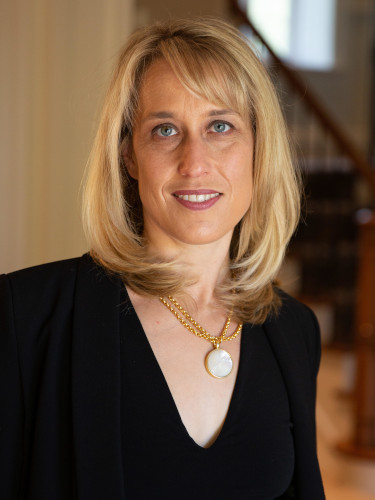Behind the closed doors of Canada’s most successful family offices, hiring decisions often hinge on more than a candidate’s resume, credentials or technical ability. While the designations CFA and CPA will open doors, it’s often the person’s communication style, empathic abilities, adaptability and good judgment that determine whether they will thrive in a family office environment.
When asked about the hiring process at Our Family Office Inc. in Toronto, relationship manager Adam Fisch says the firm already has a deep bench of technical knowledge.
“So, I think where we focus even more is whether or not the candidate is someone who can earn the trust of multiple generations of client families,” he says. “And whether or not they can navigate discussions in a constructive way that’s going to bring the family closer together.”
In a world where artificial intelligence is increasingly capable of handling technical tasks, professionals who can listen deeply, communicate clearly and build trust across generations are standing out.

Soft skills may be hard to measure, but the acknowledgment of their importance is part of a larger trend. According to the report LinkedIn’s Skills on the Rise in 2025, seven of the top 10 in-demand workplace talents are soft skills, reflecting the changing nature of work and leadership.
Yet the demand for soft skills conflicts with a generational challenge. A 2024 survey by Scouts Canada found that Canadians believe the challenges of COVID have left kids at a developmental disadvantage. The study indicated that 91.2 per cent of Canadians are concerned that kids are missing essential soft skills, from stress management to problem-solving.
At the same time, the professional world has become increasingly virtual.
“There was a time [before COVID] when we thought you can’t really build relationships and build trust online,” says Martha Simmons, co-chief operating officer at Forthlane Partners, a Toronto-based multi-family office. “But when we were forced to do it, we saw that actually we can get to know each other this way. But when you’re meeting with people virtually, you have to make a bit more of an effort to engage.”
Simmons says that client relationships can be strengthened through casual, non-topical conversations, such as asking about their children, upcoming trips or simply how their day is going. “When you’re online, it’s easier to just jump straight into the agenda item because you don’t have the white space before or after the meeting,” she says.
Canadian family offices increasingly view this shift toward valuing soft skills not as a trend but as an essential strategy. As soft skills take on new importance in an increasingly complex and virtual environment, they’re becoming a cornerstone of how these firms serve multi-generational families.
Fisch says, “We’re seeing more families who understand that working on family communication and governance and improving trust between generations is just as, if not more, important than putting the right structures in place and managing the money prudently.”

In his own role, Fisch says, three soft skills surface constantly: empathy, humility and the ability to listen well in real time. Empathy, he explains, is one of the more nuanced aspects of the job, and one of the hardest things to teach.
“It’s being able to understand not only different families, but individual family members and the dynamics between family members,” he says. “Understanding each of their perspectives is really important.”
Even the best plan is worthless if an advisor isn’t able to empathize with everyone and get each individual onboard by making them feel seen, he says.
The capacity for empathy is closely tied to one’s humility. An advisor earns trust not just by offering strong guidance but by knowing when to bring in other experts on the team. “No one knows everything,” says Fisch. “There will always be an area where you can benefit from another perspective.”
Simmons agrees, adding that humility signals a readiness to grow. If you’re humble, then you’re ready to learn and also to accept when you do something wrong.
“We’re all going to make mistakes,” she says. “So, how do you deal with those mistakes? I think that’s a key soft skill that’s really important in this line of work.”
Finally, Fisch highlights the importance of active listening. In a family office, the client isn’t just a portfolio, it’s the people behind it. Each family member brings his or her motivations and life experiences, which can lead to complex conversations.
“Being able to sit in uncomfortable moments and let information come out that you can use to best help the family—that skill set comes with maturity and experience, but it’s difficult to find,” he says.
Hiring practices
So how do family office teams evaluate the soft skills of a candidate?
When interviewing for a new position, they often dig deeper through layered interviews and open-ended questions designed to see how a candidate responds in unscripted moments.
“We put just as much emphasis on EQ [emotional quotient, a measure of emotional intelligence] as IQ when we’re hiring for client-facing roles,” Fisch says. During interviews, his team asks about life experience, not just work experience, and guides the interview in a way that lets them see how the candidate might act in a real moment with a client.
Simmons echoes that sentiment, underscoring the lasting impression that soft skills can leave with clients. “People don’t necessarily remember what you said. They remember how you made them feel,” she says.
That ability to make others feel seen and heard is increasingly part of the evaluation process itself, not just the outcome of a client relationship. It’s why soft skills are becoming one of the most sought-after qualities in hiring conversations.
Building long-term relationships
While technical training can be learned, soft skills are developed through lived experience and, in some cases, personal growth.
Fisch, half-joking, suggests therapy as a starting point. “Much of this work has overlap with therapeutic practices—the idea of improved listening, empathy and being able to give names to different feelings.”
Simmons agrees that these qualities can’t always be taught. “Some people, when they make a mistake, are willing to reflect and grow. Others deflect, get defensive or blame someone else, and that just doesn’t work.”
Family offices are looking for team members who can sit with complexity, connect across differences and lead with emotional intelligence. They aren’t just managing wealth—they’re building relationships that last generations.
Behind every successful family office isn’t just strategy. It’s someone who can earn the trust of client families, navigate important conversations across generations and become their most trusted advisor.
The Canadian Family Offices newsletter comes out on Sundays and Wednesdays. If you are interested in stories about Canadian enterprising families, family offices and the professionals who work with them, but like your content aggregated, you can sign up for our free newsletter here.
Please visit here to see information about our standards of journalistic excellence.




